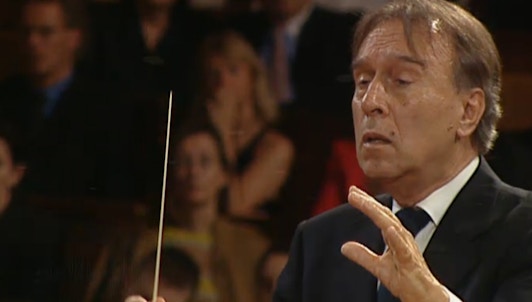Beethoven's only opera, Fidelio, is tempered by the themes of love and justice, and passed through a long and painful creative process: nine years, multiple overtures, two librettists, and a complete restructuring were needed before the composer produced the version known and performed today. The work's premiere met a mixed reception, partially due to an orchestra whose members found the music too difficult. Perhaps more problematic was the audience, primarily composed of French officers of the Napoleonic army occupying the Austrian capital city, who would have had difficulty appreciating a work denouncing the illegitimate use of force and arbitrary justice. Indeed, freedom and fraternity are the two main themes of this opera: the plot follows a young lady who through intelligence and faithful love successfully frees her unjustly incarcerated husband, and overthrows a despotic governor. The finale of Fidelio foreshadows both the Ode to Joy and the Ninth Symphony.
With this performance the Italian stage director Mario Martone makes his début at the Liège opera theatre. The remarkable cast stars Jennifer Wilson as Leonore.
Argument of Fidelio.
At the Governor Don Pizarro's request, Florestan is incarcerated in a prison near Sevilla for denouncing the abuses of the state. His loving wife Leonore is determined to free him. Dressing up as a boy called Fidelio, she joins the prison's staff. A forthcoming visit by the Minister Don Fernando worries Don Pizarro and Florestan is condemned to death. Leonore-Fidelio places herself between her husband and the Governor who is about to murder his political opponent. The providential appearance of Don Fernando, a righteous man, prevents Florestan from being killed at the last minute. The cruel Don Pizarro is condemned. Florestan is freed.
New coproduction Teatro Regio de Turin – Opéra Royal de Wallonie.

